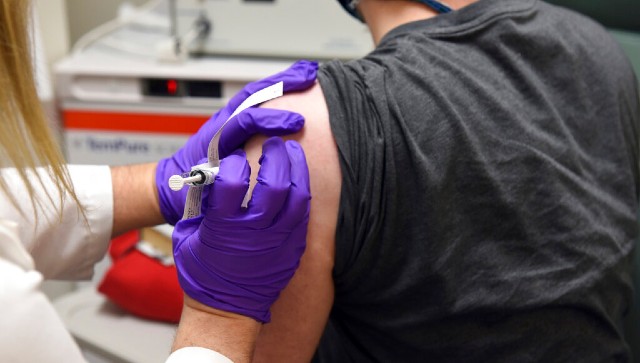Ever since the beginning of the COVID-19 pandemic, it has been clear that the development of a vaccine is likely to become humankind’s best tool to overcome the novel coronavirus. The race to create a safe and effective vaccine against the SARS-CoV-2 virus started almost as soon as the pandemic itself did. As of mid-November 2020, many vaccine trials are showing promising results. The Pfizer and BioNTech vaccine is reportedly safe and 95 percent effective. The Moderna mRNA-1273 vaccine is reportedly 94.5 percent effective. The Sinovac and Oxford-AstraZeneca vaccines are also showing potential in their respective trials. The third phase of trials for the Indian vaccine candidate, Covaxin, is also currently underway. However, even if multiple effective vaccines are created, it won’t immediately spell the end of the pandemic. A new study published in Health Affairs indicates that there are many other factors to consider before the completion of vaccine trials can be celebrated as victories. Here are the factors that this study suggests healthcare professionals, governments and global policymakers must take into account. Why vaccine efficacy matters As the efficacy of vaccine candidates are declared, you may wonder why this particular percentage matters. If a vaccination has 90 percent efficacy, it simply means that taking this vaccine will reduce your risk of disease by 90 percent as compared to people who have not been vaccinated against the disease. Age, underlying diseases, and many other factors affect the efficacy of a vaccine, which is why trials are conducted in phases to test their effectiveness against the disease in different groups of people. The Health Affairs study mentions that vaccine efficacy is the most critical outcome of these trials. Once the efficacy is reported, the vaccines will have to be evaluated by regulatory bodies like the US Food and Drug Administration (FDA). The FDA has also established a minimum efficacy threshold of 50 percent that all vaccine candidates must meet before they are approved for mass manufacturing and wide deployment or administration. Logistical challenges in storing vaccines But while the efficacy of the vaccine is critical, and so is the final approval of drug regulatory bodies, the processes after this phase are equally vital. A study published in AAPS PharmSciTech suggests that the ideal COVID-19 vaccine should be in a ready-to-use dosage form that can be stored at ambient temperatures with a long shelf life. However, most commonly used vaccines today require refrigeration at a range of 2-8 degrees Celsius and some require even lower temperatures. At the same time, vaccines in liquid form should not be frozen because this changes their biochemical balance. So, creating appropriate storage and transportation facilities for an effective vaccine is a mammoth task that follows the trials, approvals, and manufacturing processes. Who gets it first: Distribution issues to emerge Once these long processes are complete, the Health Affairs study indicates, demographic distribution problems are most likely to emerge. A US national survey has recently revealed that only 50 percent of the US population has shown an interest in getting vaccinated against COVID-19. On the policy level, this also raises the question if the most at-risk population cohorts (the aged and those with underlying conditions or pregnancy) should receive the vaccine before high-transmission groups consisting of younger, more mobile groups of people. Vaccine drives and campaigns need to be also launched on not just global but national scales, which can pose many challenges given how many decades it took to effectively eliminate polio through vaccinations. These vital distribution decisions are even more difficult in countries with a very large and unorganised population like India. How continuing rise in cases can affect vaccines Perhaps the most important factor the Health Affairs study points to is the need to take the severity of the pandemic into account when the vaccine is finally rolled out. The study suggests that the impact of the vaccine — no matter how great its efficacy — reduces dramatically as the severity of the epidemic increases. A high disease prevalence and a continuing rise in the number of cases in a given population can make even a 90 percent effective vaccine worthless. With COVID-19 infection rates still continuing to rise, especially in large parts of India, this might just be the most crucial factor policymakers need to consider before rolling out the vaccine. For more information, read our article on COVID-19 vaccine distribution. Health articles in Firstpost are written by myUpchar.com, India’s first and biggest resource for verified medical information. At myUpchar, researchers and journalists work with doctors to bring you information on all things health.
The study suggests that the impact of a COVID-19 vaccine — no matter how great its efficacy — reduces dramatically as the severity of the epidemic increases
Advertisement
End of Article


)

)
)
)
)
)
)
)
)



